View all Standards for Texas Essential Knowledge and Skills for Theatre Arts
C.4.D research the influences of world drama and theatre and identify key figures, works, and trends in dramatic literature.
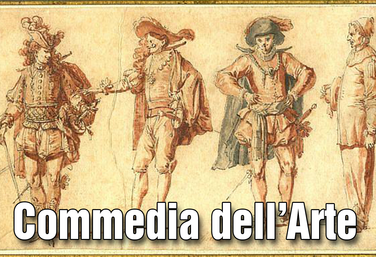
UNIT
Part of the Drama One Curriculum
Commedia Dell'Arte
by Karen Loftus
Students will discover, analyze, and explore the history, characters, and style of commedia dell’arte.
Commedia dell’arte is a theatre history unit mixed with improvisation, physicalization, and exploring specific characters. In this unit, we’re going to focus on three main aspects:
1. Causes and Effects of Commedia (History)
2. Stock Characters
3. Commedia Performance Practices
Read More
about Commedia Dell'Arte
Read Less
about Commedia Dell'Arte
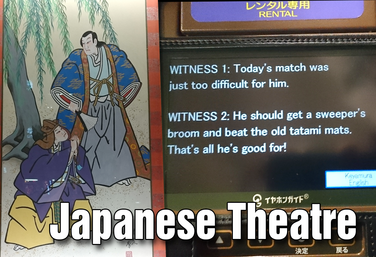
UNIT
Part of the Drama One Curriculum
Japanese Theatre
by Karen Loftus
This unit will enable students to identify, compare, and contrast three different styles of Japanese theatre: Noh, Bunraku, and Kabuki. There are three proposed projects in this unit: a research assignment where groups delve into further detail about one of the three styles; a performance project where students utilize what they’ve learned by enacting a scene from a Kyogen (comedic) play; and a Bunraku puppet play.
Read More
about Japanese Theatre
Read Less
about Japanese Theatre
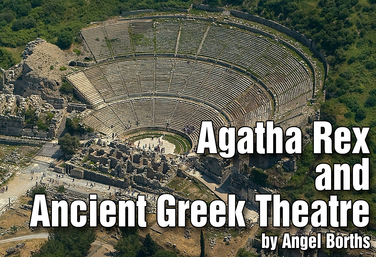
UNIT
Agatha Rex and Ancient Greek Theatre
by Angel Borths
Help…It’s all Greek to me! Join Angel Borths in this unit that uses a modern adaptation of the Ancient Greek play Antigone to introduce Middle School students to Ancient Greek Theatre.
Have your students read Percy Jackson and want to find out more about Ancient Greece? Then, this unit is for you. This unit is designed for middle and high school students and will take you through the basics of classical Greek theatre and pairs it with a modern adaptation of the story of Antigone called Agatha Rex by Lindsay Price. Students will learn vocabulary, design, and basic theory surrounding classical Greek theatre. Students will also enjoy the mask building component of this unit, as they learn to disappear into the character of a mask, like the first actors did on a Greek stage thousands of years ago.
The unit culminates in a scene performance with masks.
Read More
about Agatha Rex and Ancient Greek Theatre
Read Less
about Agatha Rex and Ancient Greek Theatre
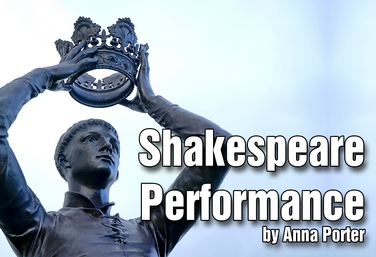
UNIT
Shakespeare Performance
by Anna Porter
In this unit by Anna Porter, students are introduced to the works of Shakespeare and explore how to bring a character to life in a monologue performance. Students are also introduced to the tools to help them unlock meaning in Shakespeare’s text. Through this eleven lesson series, students will participate in class discussions, activities and performance. Assessment tools include informal assessment, submission of textual analysis work and a final performance.
Read More
about Shakespeare Performance
Read Less
about Shakespeare Performance

UNIT
Unlocking Shakespeare's Text
by Anna Porter
Shakespeare’s text holds valuable tools that students can use to unlock and understand meaning. In this unit by Anna Porter, students explore how to use the tools of research, context, textual analysis, imagery and punctuation to help them unlock meaning in Shakespeare’s text. This unit is created for an Intermediate to Advanced drama class with a basic background in plot structure and acting technique.
Through this five lesson series, students will use journals, participate in class discussions, activities and performance to explore the tools used to unlock a text. Assessment tools include informal assessment as well as a final group presentation and performance.
Read More
about Unlocking Shakespeare's Text
Read Less
about Unlocking Shakespeare's Text
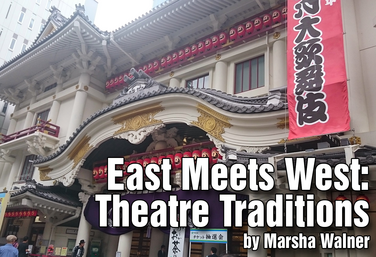
UNIT
East Meets West: Theatre Traditions
by Marsha Walner
We spend a lot of time in the classroom exploring, applying, and creating in a western theatrical tradition. But there are many more styles that students can explore, particularly to the east: Kabuki, Noh, Chinese Opera, and Sanskrit Theatre, for example. In this unit, students will be introduced to an element from each of these eastern styles, they will apply that element and build towards a culminating project. Throughout, students will develop a stronger understanding of both the theatre from their own culture and that of Eastern cultures.
Read More
about East Meets West: Theatre Traditions
Read Less
about East Meets West: Theatre Traditions

UNIT
Anti-Realism
by Wendy-Marie Martin
This unit gives students an overview of the anti-realism movement of the late 19th century and early 20th century and introduces them to some key theorists, playwrights, and theatre makers involved in this movement. Students will be introduced to the “isms” of symbolism, Dadaism, surrealism, expressionism, and absurdism along with various manifestos and theories as we track the characteristics of each “ism.”
In a culminating project, students will design an “ISMS’’ Theme Park, which they will share with the class at the end of the unit. Their project will feature each of the five “isms” in the form of rides, themed concessions areas, entertainment options, and in-park characters.
Read More
about Anti-Realism
Read Less
about Anti-Realism

UNIT
Spoken Word Poetry
by Quincy Young
In this unit, students will create a performance of a spoken word poem designed to engage, entertain, and affect an audience. They will also write a poet’s statement in which they describe the purpose(s) or inspiration(s) of their poetry.
This is not a technical writing unit and is geared more toward students self-expression and engaging an audience. If your students are not skilled poets, this unit is still accessible.
Read More
about Spoken Word Poetry
Read Less
about Spoken Word Poetry
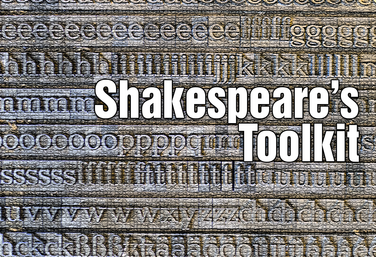.png)
PD COURSE
Shakespeare's Toolkit
by Todd Espeland
Todd Espeland has the experience to know that having more tools in your toolbox makes you a better actor. This is especially important when teaching students how to approach Shakespeare. They need help breaking through the language barrier and into the character’s needs and into the character’s thoughts.
The tools that you’ll receive in this course will do just that. The course looks at scansion as a tool for breaking down Shakespeare’s verse, the importance of end of lines, and caesura. Caesura is an inner-line pause which is a lot of fun to play with and really, helps us provide insight to the character’s thoughts and into their needs.
The course provides numerous examples and handouts, and culminates in a performance assignment to use with your students.
Read More
about Shakespeare's Toolkit
Read Less
about Shakespeare's Toolkit
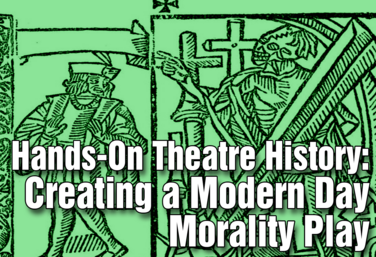
PD COURSE
Hands-On Theatre History: Creating a Modern Day Morality Play
by Wendy-Marie Martin
Who says theatre history has to be boring? Hands-On Theatre History: Creating a Modern Day Morality play is an interactive course by Wendy-Marie Martin, combining hands-on activities with research and analysis techniques leading to a full performance of the popular medieval morality play, Everyman.
This course gives students an overview of the medieval period and the various medieval play forms and teaches students the key points of storytelling and adaptation.
It includes dynamic individual and group exercises leading students from the first steps of the adaptation process through a final, full-class performance of Everyman—and proves, once and for all, that theatre history can be fun and exciting to learn.
Read More
about Hands-On Theatre History: Creating a Modern Day Morality Play
Read Less
about Hands-On Theatre History: Creating a Modern Day Morality Play
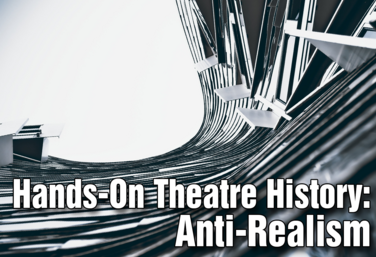
PD COURSE
Hands-On Theatre History: Anti-Realism
by Wendy-Marie Martin
This course is a mix of individual and group activities requiring students to use both their analytical and creative mind. It gives students an overview on the Anti-Realism movement of the late-19th and early-20th century, and introduces them to some key theorists, playwrights, and theater makers involved in this movement.
Together we will guide students through the wild world of the “isms,” more specifically Symbolism, Dadaism, Surrealism, Expressionism and Absurdism. We will introduce students to various manifestos and theories as we track the characteristics of each of our five “isms.” As we combine analysis and creative exercises, students bring their entire self to process and prepare to design an ISM Theme Park project, which they will share with the class at the end of the course.
Read More
about Hands-On Theatre History: Anti-Realism
Read Less
about Hands-On Theatre History: Anti-Realism
View all Standards for Texas Essential Knowledge and Skills for Theatre Arts Standards Master List